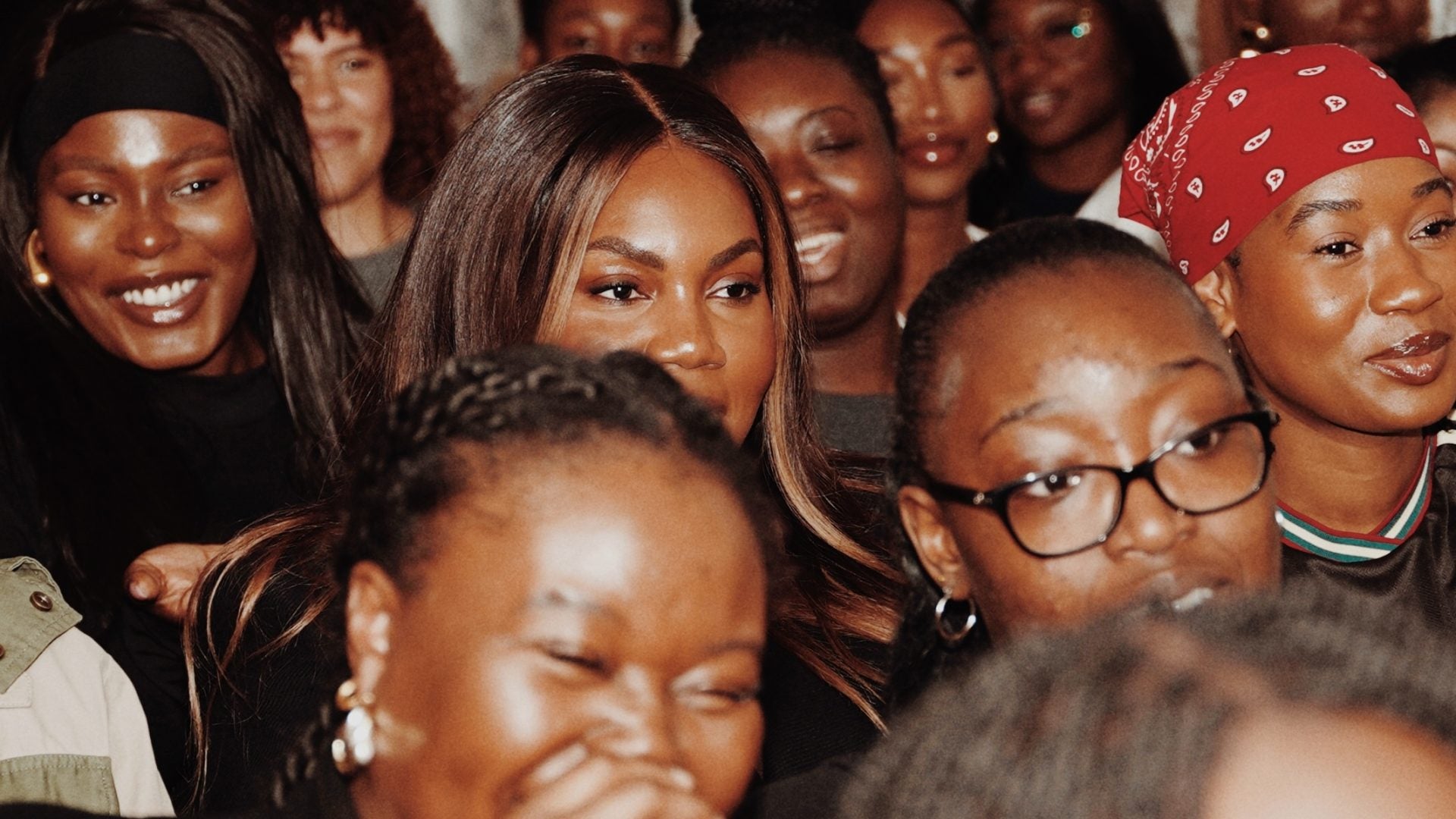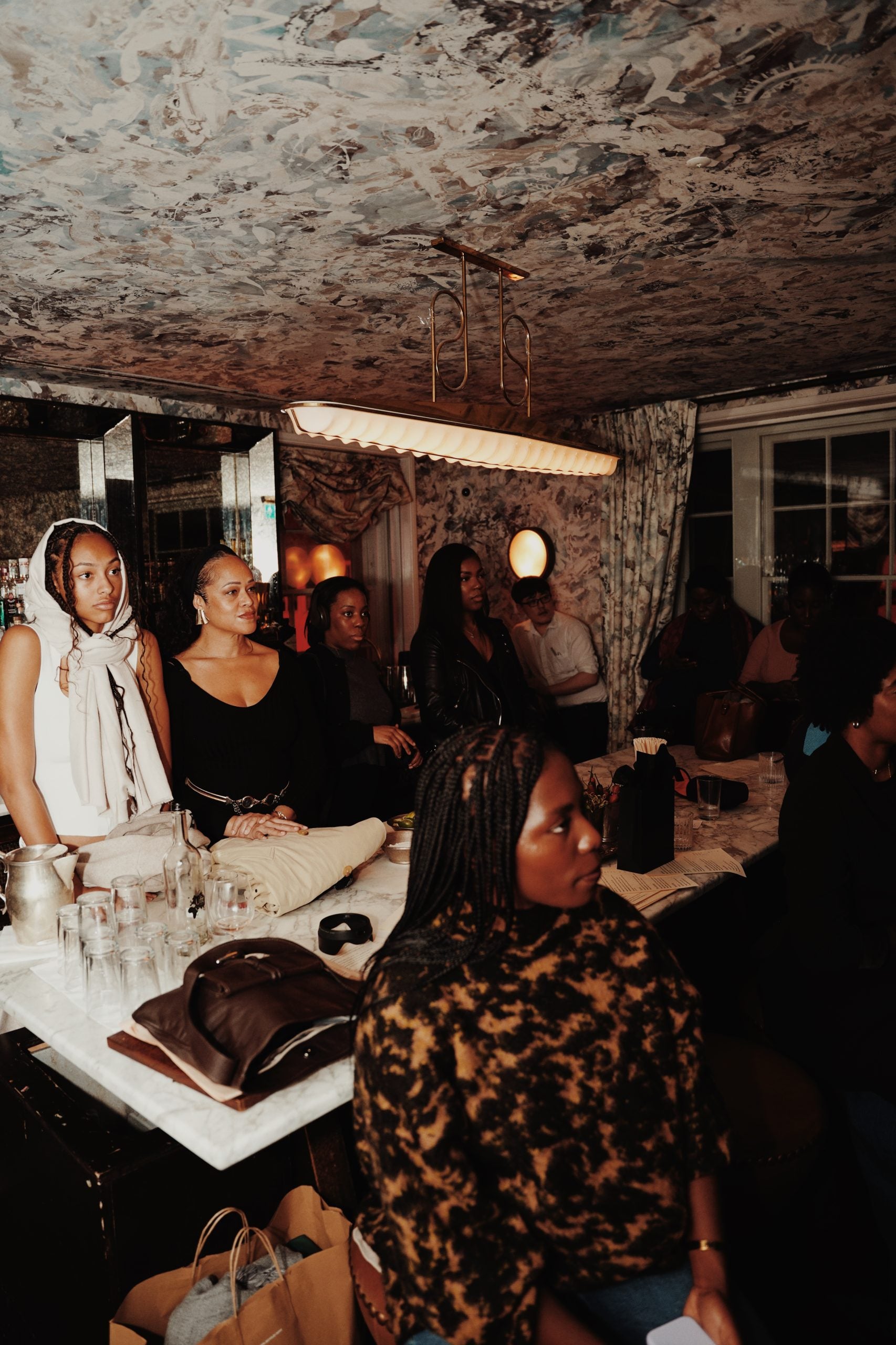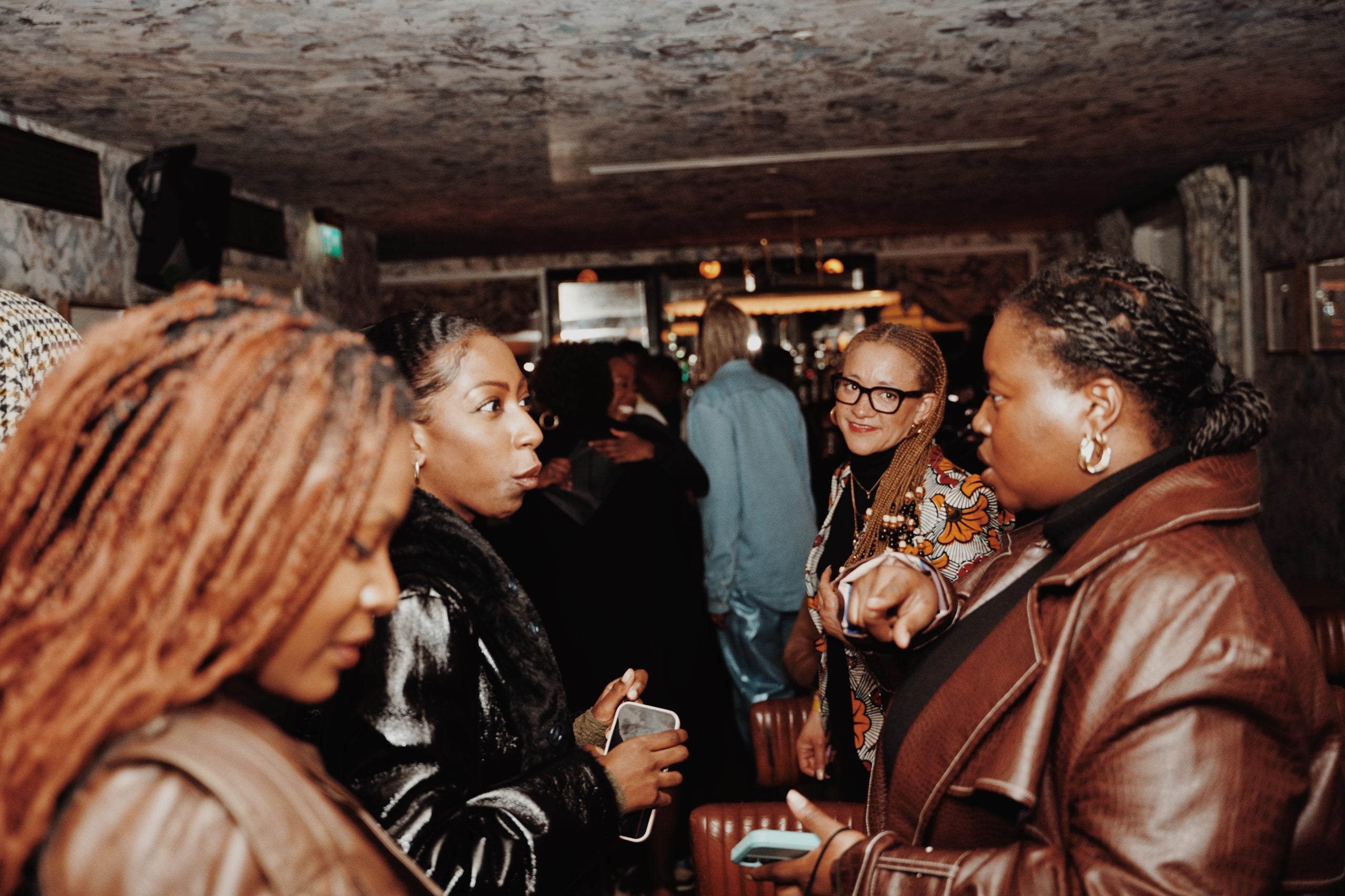
“Let’s have a conversation around beauty and what the actual appetite for investment in Black beauty really looks like,” founder of The Black Beauty Club, Tomi Talabi, tells ESSENCE. In late 2020, Talabi had that conversation on Clubhouse, laying the groundwork for future beauty conversations that would soon turn into a social club. However, at the time, finding space for Black beauty during the Covid-19 pandemic was widely deemed “non-essential.”
“Businesses that were related to beauty, especially as it relates to Black people or people of color, were not suddenly ramping up,” Talabi says, as nail salons and beauty supply stores faced shut down. “It wasn’t considered a relevant business.” Regardless of the rise (and unfortunate fall) of inclusivity and support for Black-owned businesses back then, our beauty communities were pushed apart, exposing the inevitable will to grow closer together. “The Black Beauty Club was born from a desire to cultivate real-world communities on a global scale.”

In 2022, the club’s first Salon Series launched in New York with Soho House, setting off conversations about “boughetto” lace front wigs, decadent overgrown nails, and the reclamation of low-brow beauty stereotypes. Since then, TBBC has hosted over 70 events across New York, London and Paris, joining the African diaspora with rich salon-style discussions about our beauty. “We could have conversations around the business, we could also have conversations about ritual enthusiasts, what we like, what we didn’t like, and what we could share with each other,” she says.
Tapping hosts like epi.logic’s Dr. Chaneve Jeanniton, The Black Skin Directory’s Dija Ayodele, and beauty editor Kayla Greaves, the club builds a safe space for Black people to learn about our global diversity. “I think people like to hear somebody who is Black but has a completely different accent [from a country] you never knew a black person existed in,” Talabi says, only to find out they have the same beauty ritual as someone from West Africa, Mexico or Eastern Europe.

The Black Beauty Club is also a space to tap into our differences. Discourse, for example, about South African artist Tyla identifying as “colored,” which, to Black Americans, is a racist word. Or, the challenge Parisian club members had in identifying the influence of Black French beauty as opposed to American and English standards like Rihanna and Naomi Campbell. “We’re also learning what makes us uncomfortable and it’s good for us to be uncomfortable with each other so that we can learn,” she says.
With the Salon Series spanning across the African diaspora, receiving over $1 million dollars in support from partnerships like Nars, Glossier and their Glossier Grant program, what’s next for TBBC is well within Talabi’s reach. “With our events typically drawing over 100 attendees, we strive to ensure that Black people always have access to inclusive spaces and authentic community,” she says, with her sights set on nothing less than Canada, Sweden, and Tokyo next.